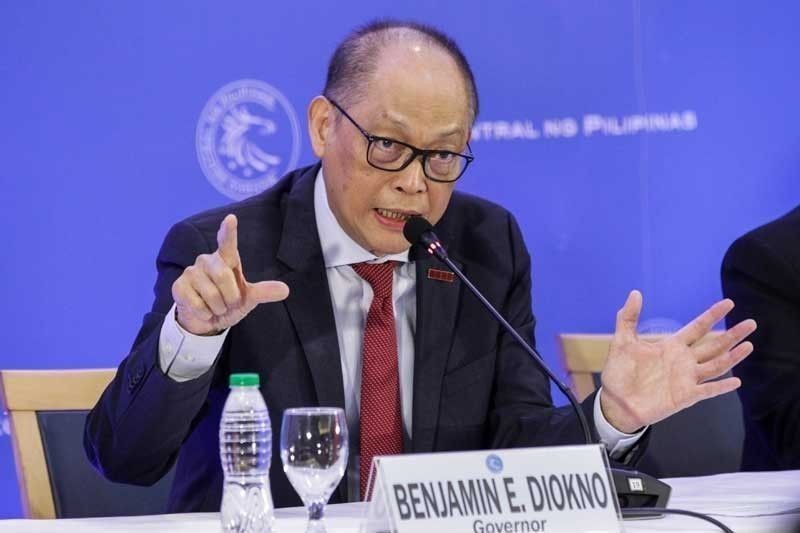Foreign debt rises to $81.4 billion

Higher borrowings linked to COVID funding
MANILA, Philippines — The country’s external debt inched up by 1.2 percent in the first quarter and is seen rising further as the Philippines turns more to the offshore debt market for funds to mitigate the impact of the coronavirus disease 2019 or COVID-19 pandemic, the Bangko Sentral ng Pilipinas (BSP) said.
BSP Governor Benjamin Diokno said the country’s foreign obligations reached $81.42 billion as of end-March, $990 million higher than the $80.43 billion a year ago.
Diokno said the rise was due to the net repayment largely by private banks’ short-term accounts amounting to $2.2 billion.
The increase, according to the BSP, was more than offset by the transfer of Philippine debt papers from residents to non-residents at $2.4 billion, prior periods’ adjustments at $482 million, and positive foreign exchange adjustments at $266 million.
Despite the rise in external debt, Diokno said the country’s key external debt indicators remained at prudent levels.
Diokno said the debt service ratio, which measures the adequacy of the country’s foreign exchange earnings to meet maturing obligations, improved to 8.9 percent in end-March from 5.7 percent, while the external debt ratio decreased to 21.4 percent from 22.2 percent and remains one of the lowest in Southeast Asia.
Public sector external debt reached $45.1 billion and accounted for more than half or 55.4 percent of the country’s foreign debt. The national government accounted for 85 percent or $38.3 billion of total, while government-owned and controlled corporations, government financial institutions and the central bank cornered the remaining 15 percent or $6.8 billion.
On the other hand, the external debt of private companies amounted to $40.8 billion for a share of 44.6 percent.
According to the BSP, major creditor countries include Japan with $14.9 billion, followed by the US with $3.6 billion, Netherlands with $3.3 billion and the UK with $3.2 billion.
Loans from official sources with multilateral lending institutions and bilateral creditors had the largest share of 33.6 percent, followed by foreign holders of bonds and notes with 31.6 percent, and obligations to foreign banks and other financial institutions at 28.9 percent.
In terms of currency mix, the country’s debt stock remained largely denominated in US dollars with 55.7 percent and Japanese yen with13.4 percent. Dollar-denominated multi-currency loans from the World Bank and Asian Development Bank represented 17.4 percent.
Data showed the maturity profile of the foreign debt remained predominantly medium and long-term in nature with original maturities longer than one year with share to total at 83.6 percent, while short-term accounts with maturities of up to one year comprised the 16.4 percent balance.
“This means that foreign exchange requirements for debt payments are well spread out and, thus, more manageable,” Diokno said.
Latest data from the central bank showed the country’s gross international reserves hit an all-time high of $90.94 billion, equivalent to 5.5 times the country’s short-term external debt based on original maturity.
The national government borrows heavily from foreign and domestic creditors to finance the country’s budget deficit as it spends more than what it actually earns.
Economic managers are now expecting a wider budget deficit of 8.4 percent of gross domestic product (GDP) instead of the original 3.2 percent of GDP as revenue collections would drop 16.7 percent and disbursements jump by 11.3 percent this year due to the pandemic.
They are expecting a higher debt-to-GDP ratio of 49.8 percent this year, 51.5 percent next year, and 52.3 percent in 2022 due to additional borrowings. The country has obtained $5.65 billion in budgetary support from the World Bank, ADB and dollar denominated bonds as it continues to boost its war chest against COVID-19.
- Latest
- Trending



























